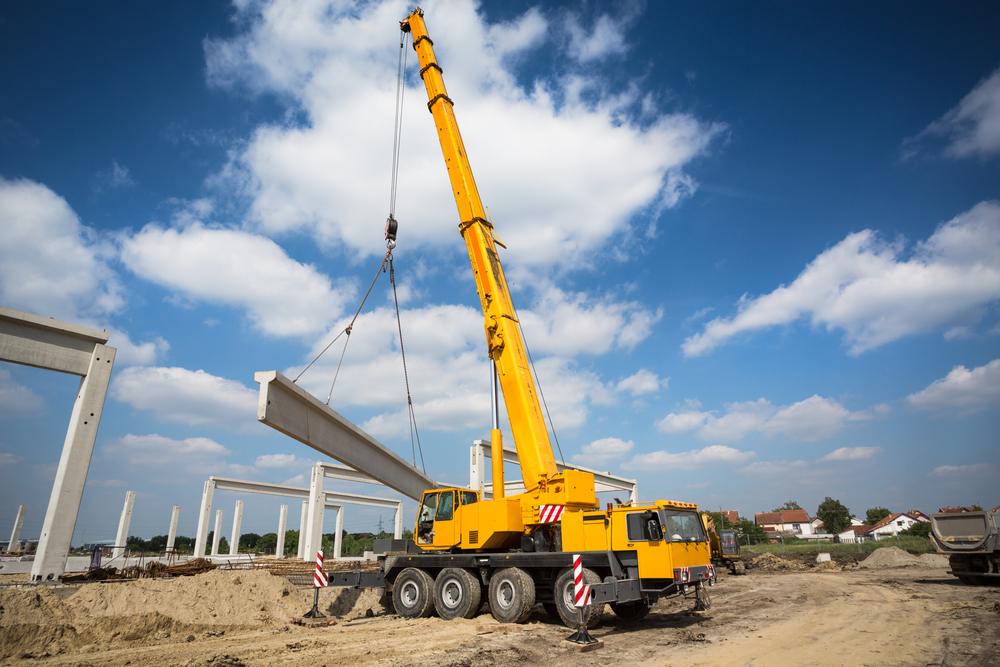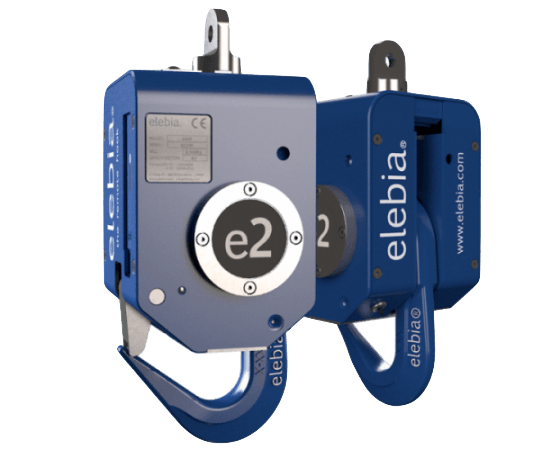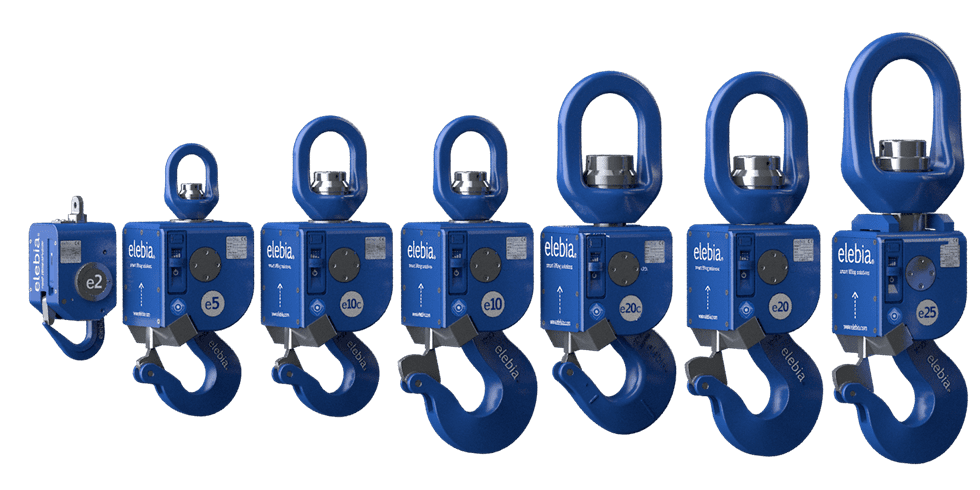Mobile cranes are an instrumental piece of equipment, mounted on a prime mover and controlled by pulleys and cables. Their design facilitates their transportation to and from different sites. In most cases, they don’t require much effort to assemble or setup.
Discover our Products
Features and Advantages of Mobile Cranes
Essentially, a hook is suspended using a wire rope from a boom, which the crane operates. The wire ropes are then operated from the prime mover.
As years go by, different types of mobile cranes are manufactured, each of them serving a different purpose with different advantages, especially over fixed cranes. The basic advantages of these cranes are that they are effortless to transport, they can handle a wide range of terrains, and require little to no assembly. Check out our range of overhead crane hooks.

12 Types of Mobile Cranes
Let’s take a look at different types of mobile cranes based on their usability and productivity.
Carry Deck
This is a small crane featuring four wheels and a 360-degree rotating boom located at the center of the crane. The operator of the crane sits in a cab under the boom at one end. With an engine located at the rear and a flat deck just above the wheels, it can easily hoist loads in very confined spaces and move them to a desirable location. Just like the Pick and Carry, this crane can move loads over short distances.
Crawler Crane
Instead of having wheels, these heavy-duty cranes move from one place to another using treads, which are referred to as crawlers. Most civil engineering constructions prefer using this equipment because it is not only very stable, but can also carry loads weighing up to 3,500 tons. Furthermore, it is improbable for a crawler crane to get stuck in the mud when using it in muddy areas or rainy seasons. The crawler crane may require disassembly before transportation.
Floating Crane
These are the cranes engineers mostly use in the construction works of ports and bridges. However, they can also be used to load and unload awkward or heavy cargo on and off ships. In some cases, they are mounted on boats or barges and can carry weights over 10,000 tons. Floating cranes can also transport an entire bridge section.
Rough-Terrain Crane
These cranes are designed with wheels and engines which make sure they can easily find their way through unpaved terrains and landscapes. If you are planning on starting construction in off-road areas or virgin lands where other cranes might not reach, this is the best option to go for. It requires no need for site preparation. The 4-wheel drive prime mover operating on a single-engine produces enough power to operate the boom and undercarriage in challenging landscapes.
Check our different range of Hooks
Truck Mounted Crane
These are the most popular cranes in the market today, available for rent or purchase. The crane is mounted on a rubber tire truck for easy mobility. The outrigger extends horizontally or vertically, depending on the site’s needs. It can handle a wide range of tasks, with the ability to hoist loads weighing up to 1,300 tons. You don’t have to transport it when going on the highway. Instead, you drive it to the site. Most of these cranes can swivel 360 degrees.
All-Terrain Crane
This crane is a perfect hybrid combination of a rough-terrain crane and a truck-mounted crane. It is easy to maneuver and can easily be driven on the roads but still manage to maneuver through rocky landscapes. It is a piece of preferred heavy-duty machinery because of its versatility and the fact that it can handle up to 1,300 tons.
Pick and Carry Crane
This is similar to a Carry Deck crane, the American version of this crane. Eventhough their design allows them to travel on public roads, they don’t come with outriggers or stabilizers like other cranes. However, they can hoist a load and carry it over a short distance. It has a capacity range between 10 and 40 tons. They are the best alternative to small mobile cranes. Furthermore, it is quicker to set them up.
Newsletter
Sign up for our newsletter and get the latest news from elebia
Sidelifter
This is a more permanent type of crane attached on the top of a flatbed road-going semi-trailer or truck. They are mostly used to load and unload ISO standard containers to and from the flatbed section of the trucks. These containers are lifted using parallel hoists from the flatbed section from a train or the ground. They can also be used on some construction sites.
Travel Lift
It is also referred to as a boat crane or a gantry crane that features two rectangular side panels, which are joined by one spanning beam on one end at the top. It is highly mobile with four groups of wheels on either side of the equipment. They are especially useful in removing boats from the water and moving them to a suitable location on the docks.
Railroad Crane
This is a crane designed with flanged wheels for railroad applications. The simplest version of a railroad crane is often mounted on a flatcar. However, there are more purpose-built railroad cranes. They are mostly used for recovery operations, loading and unloading freight goods in scrap handling facilities and yards and maintenance work.
Aerial Crane
Otherwise referred to as sky cranes, aerial cranes are designed like helicopters, meant to lift large cargo from one location to the other. They are mostly used to transport large loads to hard-to-reach areas where conventional cranes might not reach. They are also instrumental in lifting loads to high-rise buildings and commercial centers, provided the cargo is within their lifting capacity. These cranes are also vital useful in times of disaster relief and putting out wildfires.
Telescopic Handler
These cranes look like forklift trucks but have a telescopic extendable boom mounted on them. They are most useful in hoisting framing trusses or mobbing pallets of bricks. They have the capability of rotating 360 degrees on a turntable. Most of them now have stabilizer legs and outriggers that have to be lowered before use.
elebia, the Best Hooks for Mobile Cranes
After reviewing the most common types of mobile cranes in the market, the next step should focus on finding the best automatic lifting hooks for the chosen crane.
The automatic crane hooks will boost the safety and productivity of your cranes. These patented evo automatic hooks range from the 2.5 tons capacity of the evo2 crane hook to 25 tons capacity and allow you to hook on and release any load remotely.
Our patented range of crane safety hooks are equipped with a magnet in its lower section. When the magnet is close to the load, it attracts and correctly positions the sling. You can also check our other lifting hooks for crane.
Other safety and productivity features include automatic latches, clutch protected motors, position encoder, bumpers with LEDs and with the guarantee of their fail-safe design.





